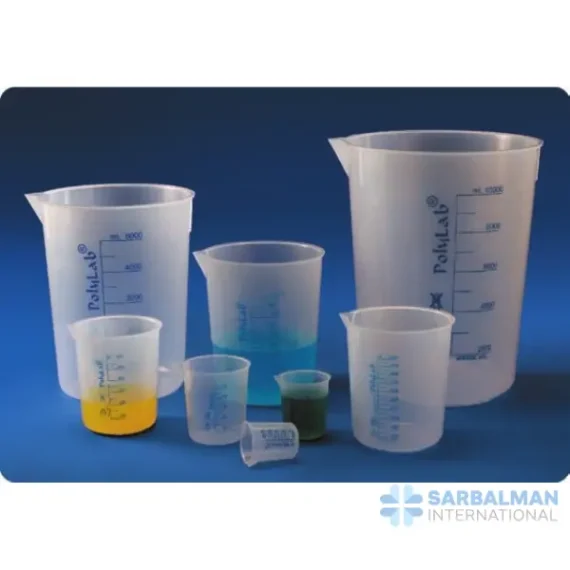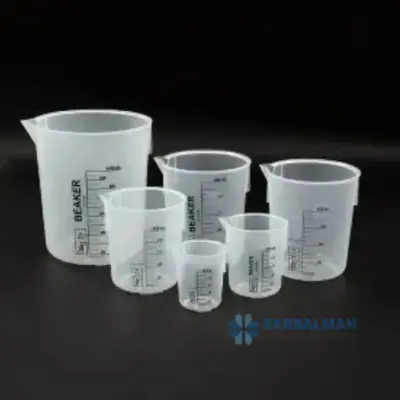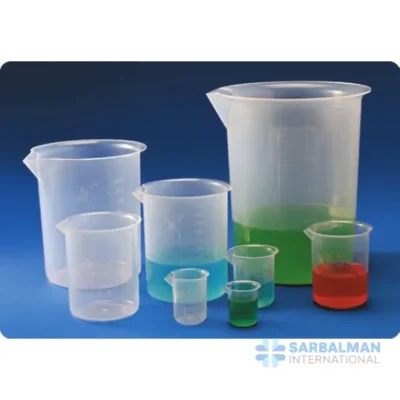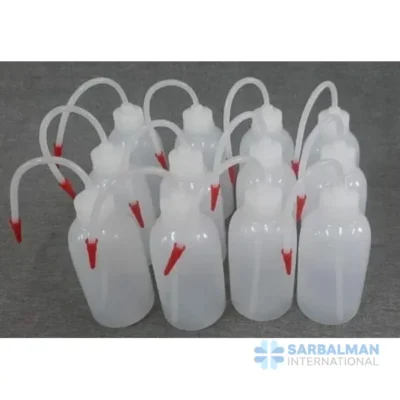Beaker Polypropylene (PP)
Free!
A polypropylene (PP) beaker is a tough, translucent lab beaker for everyday measuring, mixing, and pouring. It resists most aqueous chemicals, includes easy-read graduations, and features a clean-pour spout. Autoclavable and shatter-safe, it lowers breakage costs while keeping workflows fast and tidy. Choose PP beakers for routine prep and transfer tasks where reliable performance and safer handling matter more than direct heating.
Description
A polypropylene (PP) beaker is a lightweight, shatter-resistant laboratory beaker designed for everyday measuring, mixing, and decanting. Made from chemically resistant PP, it handles common acids, bases, salts, and aqueous solutions without corroding or shedding flakes like metal or glass can under impact. The translucent body lets you see liquid levels clearly, while molded graduations and a drip-resistant pour spout make it practical at the bench. Unlike glass, PP beakers won’t chip if dropped, reducing breakage costs and safety risks.
Key features and benefits:
• Durable PP construction: impact-resistant and long-lasting for busy labs
• Broad chemical compatibility with most water-based reagents and buffers
• Translucent body with crisp, molded graduations for quick volume checks
• Drip-resistant spout for clean, controlled pouring
• Autoclavable at standard cycles; resists most routine disinfectants
• Stackable design options to save storage space and streamline inventory
Common use cases and industries:
• Sample prep, reagent mixing, and general solution handling in research, QC, and teaching labs
• Weighing and transfer tasks in pharmaceutical, food, and environmental testing facilities
• Water baths, temperature equilibration, and buffer makeup where glass is unnecessary
Comparison guidance:
• Versus glass beakers: PP is lighter, safer on impact, and more cost-effective, but not suitable for direct heating on hotplates or open flames.
• Versus other plastics: PP generally tolerates higher autoclave temperatures than polystyrene and offers better chemical resistance than PET for routine aqueous work.
Quality notes:
• Supplied in a range of capacities for small-volume to bulk prep workflows.
• Documentation for material grade and compliance can be provided on request to support method validation and audits.







